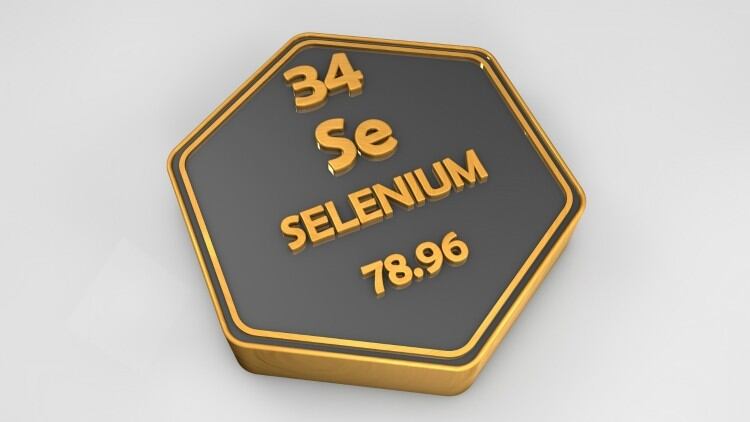However, conflicting evidence necessitates more high-quality clinical studies on the subject.
Insulin resistance, pre-diabetes and metabolic syndrome are early high-risk indicators of CMDs, which have shown a yearly increase in terms of prevalence and mortality. This has resulted in a huge economic burden on healthcare systems in multiple countries.
Studies on CMDs have found that dietary supplementation containing sufficient nutrients may help to lower CMD risk, thereby suggesting that nutritional intervention could effectively manage CMDs.
One such micronutrient, selenium has been reported as effective in regulating glucose and lipid metabolism. However, different clinical trials involving selenium supplementation to treat CMDs have produced conflicting evidence.
Studying selenium supplementation
As such, researchers in China conducted a systematic review and meta-analysis to determine selenium’s impact on insulin resistance, glucose homeostasis and lipid profiles in CMD patients. They selected 10 RCTs involving 526 participants from five electronic databases and focused on insulin levels, insulin resistance, fasting plasma glucose and glycosylated haemoglobin A1C (HbA1c) as the primary outcome markers, with lipid markers being the secondary outcome markers.
After a sensitivity analysis to address heterogeneity, nine studies remained; the review then found that the pooled results showed that selenium supplementation “remarkably lowered” serum insulin levels and decreased insulin resistance.
Selenium supplementation’s effect on fasting plasma glucose was assessed in 492 study subjects in the nine studies. Due to high heterogeneity, the researchers conducted sub-group analysis based on the participants’ underlying diseases.
The review noted that in one of the sub-groups, fasting plasma glucose levels in cardiovascular disease patients were “significantly lower in the selenium group than in the control group”. However, it also observed no statistical difference in fasting plasma glucose levels in the other two sub-groups.
At the same time, only two of the 10 selected studies, involving 114 participants, assessed the impact of selenium supplementation on HbA1c. Both studies reported reductions in HbA1c in both the selenium and control groups after treatment, though one reported a more significant reduction in the selenium group than in the control group. However, it should also be noted that the heterogeneity between the two studies was high.
While selenium supplementation was also found to help increase high-density lipoprotein (HDL) cholesterol levels, it did not have a significant effect on other blood lipids. Furthermore, in the sub-group based on disease types, the review found that selenium supplementation actually increased HDL cholesterol levels more significantly in cardiovascular disease patients, followed by diabetes patients.
The review noted that HDL cholesterol had anti-inflammatory, anti-atherogenic, and anti-thrombotic properties, which contributed to its cardio-protective effects. As such, “appropriate selenium supplementation may contribute to the improvement of CMDs, particularly cardiovascular disease”.
The good, the bad and the future
While the current meta-analysis benefited from a comprehensive search strategy, a high degree of data accuracy, no publication bias and minimal impact from study design faults, the researchers acknowledged several limitations.
Firstly, the control groups in the selected studies had received placebos instead of varying selenium doses, so the review could not accurately determine the optimal dose of selenium supplementation. At the same time, the sample size in each of the reviewed studies was small (below 100) and only two largely heterogenous studies assessed selenium supplementation’s impact on HbA1c.
The review also did not include RCTs that had tested the impact of other nutritional supplements (in addition to selenium) on CMD patients, or trials that reported markers related to glucolipid metabolism. Finally, all the relevant included studies had been conducted in Iran, which could have limited the generalizability of the review’s findings.
As such, the researchers suggested that future RCTs should “pay more attention to the different doses of selenium supplements and the baseline level of serum selenium of CMD patients in order to further illuminate the therapeutic effects of selenium supplementation on CMDs”.
While the current evidence points to selenium supplementation’s ability to lower insulin levels and insulin resistance and increase HDL cholesterol levels, more high-quality RCTs are required to better support it as an effective strategy for reducing insulin resistance in patients with CMDs and to “better systematically evaluate the effectiveness of selenium supplementation in different types of CMDs”.
Source: Nutrients
https://doi.org/10.3390/nu14224933
“Potential Benefits of Selenium Supplementation in Reducing Insulin Resistance in Patients with Cardiometabolic Diseases: A Systematic Review and Meta-Analysis”
Authors: Jiahui Ouyang, et al.


